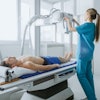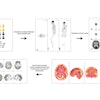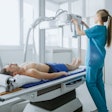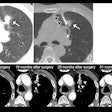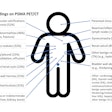Dear AuntMinnie Member,
The radiology community has been viewing the upcoming RSNA 2021 meeting with anticipation, but also with some trepidation. While most radiology professionals want to get back to in-person meetings, there are also nagging concerns about the safety of big conferences during the COVID-19 pandemic.
So it's understandable that our top story for the week was an article on medical imaging OEM Canon Medical Systems announcing that it will not exhibit in person in Chicago and instead will focus on a virtual exhibit. The company's decision also applies to the American Society for Radiation Oncology meeting later this month.
The question now remains whether Canon's move will be followed by other imaging OEMs. Only time will tell.
Med students fear AI
Radiology has (for the most part) embraced artificial intelligence (AI), seeing it as a tool to help imaging specialists deliver better patient care and deal with a growing volume of scans. But the same can't be said for medical students.
A new survey has found that some medical students may be scared off from picking radiology as a specialty due to fears that jobs in imaging could be jeopardized by growing use of AI. The findings should be a warning to radiology educators that they need to do more outreach to counteract these impressions.
While you're in our Artificial Intelligence Community, learn about how an image denoising algorithm based on AI was able to cut reconstruction times for PET images without affecting image quality. Plus, read about how a deep-learning model was able to help breast imaging specialists triage screening breast MRI scans by accurately ruling out the exams that were normal.
Get these stories and more in your Artificial Intelligence Community.
MRI of sleep apnea
In other news, intriguing findings were published this week in the world of MRI, where German researchers found evidence of white-matter hyperintensities that were more prevalent in the brains of people with obstructive sleep apnea.
Also, researchers from Minnesota found that cardiac MRI can be the best technique for imaging patients who are suspected of having cardiac tumors, while a team from California used functional MRI to make some interesting discoveries of how the brain organizes memories.
Learn everything going on in the world of MRI in our MRI Community.
